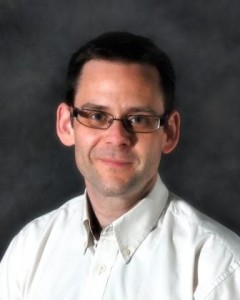Canada’s best teachers: Scott North
This 3M winner has a unique talent for attracting students to oncology
Share
 In 1986, to recognize the importance of university teaching, the Society for Teaching and Learning in Higher Education and 3M Canada created the 3M National Teaching Fellowships. Ten university faculty members are recognized each year for their educational leadership and exceptional contributions to teaching. Here we continue our series profiling all 10 of the 2011 3M Teaching Award winners, with a look at Scott North, an oncology professor at the University of Alberta.
In 1986, to recognize the importance of university teaching, the Society for Teaching and Learning in Higher Education and 3M Canada created the 3M National Teaching Fellowships. Ten university faculty members are recognized each year for their educational leadership and exceptional contributions to teaching. Here we continue our series profiling all 10 of the 2011 3M Teaching Award winners, with a look at Scott North, an oncology professor at the University of Alberta.
One of the worst mistakes a professor can make is “overteaching the topic,” says University of Alberta oncology professor Scott North. Many professors “teach to a level of detail that is much above what the average person needs to know and in so doing . . . they turn [students] off.” The critical skill for teachers is to know when “less is more.”
North favours comparing his own approach to a tree. “There are branches which are concepts and there are leaves which are detailed information.” The same way trees shed and renew their leaves every year, details are always in flux. “The branches, or concepts, remain present,” he says. “Teach the student the fundamentals and you will provide them the tools to find out the details.”
Recalling that during medical school he wasn’t particularly interested in oncology—only choosing his specialization during his residency—North takes great care to emphasize to his students that he is not trying to turn them all into oncologists. He points out that nearly everyone has been affected by cancer, and that his goal is to help students become well-rounded doctors with a firm understanding of how to “work with cancer patients in a way that improves the doctor/patient relationship.”
While it might be fashionable for educators today to dismiss the lecture format as outdated, North recognizes that lectures are “still useful teaching vehicles” that “are efficient when trying to get information across to a large number of learners.” At the same time he does his best to pepper his lectures with humour and anecdotes.
Practical teaching methods also feature heavily in North’s classrooms. He brings in patients to discuss their illnesses, and regularly enlists actors so that medical students can practice diagnosing patients, hone their bedside manner, and learn how to deliver bad news. As he teaches students during the pre-clinical part of their degree, such experience is invaluable.
“This helps to introduce skills and topics that might be either emotionally difficult or uncomfortable to students so they can experience it and learn before having to do it on real patients,” he says.
Shaun Loewen, a radiation oncology resident, who took a course with North in 2004, says his classic undersell of oncology as a career, North’s skills as a lecturer, and his desire to fully prepare students to enter clinical training are what led him to become an oncologist himself: “I view my experiences in Professor North’s oncology course as the seminal event that pointed me towards a career in oncology.”